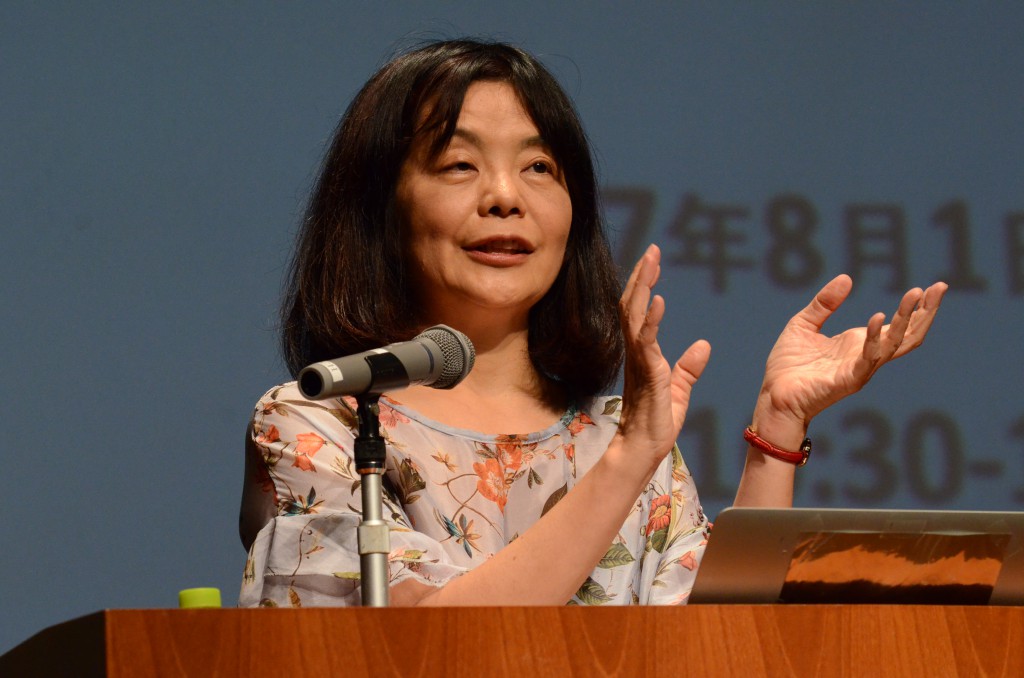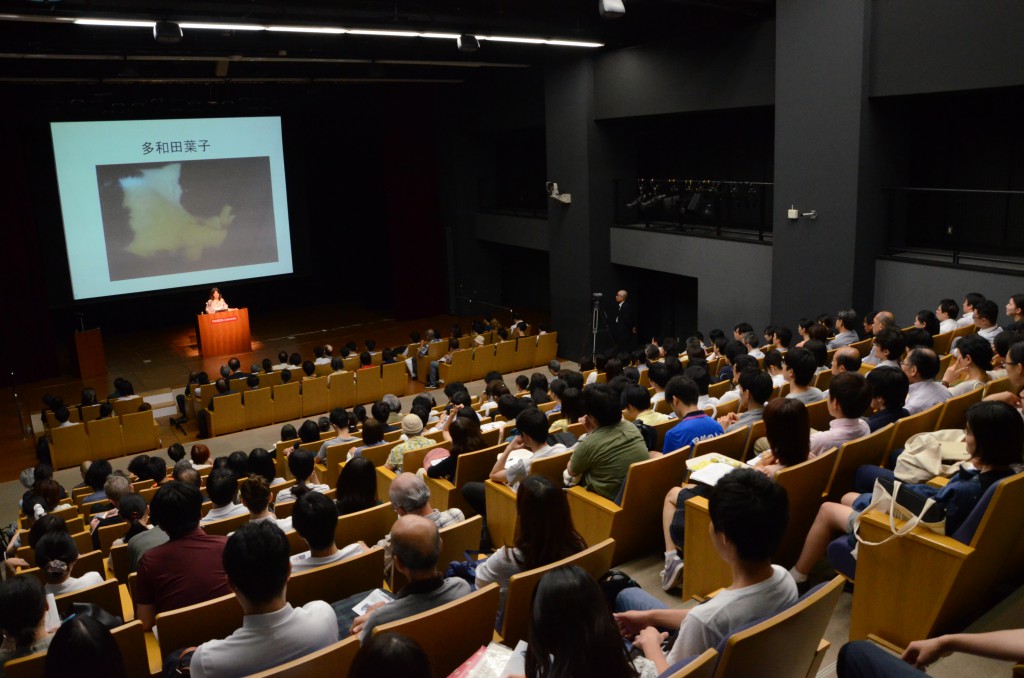Academic Leader Seminar featuring Author Yoko Tawada
From Male Cats to Hangovers: Language and Identity
Waseda University is currently holding the Academic Leader Seminar series, where leading figures with a global reputation give presentations about their respective fields. On August 1, the University welcomed renowned writer and poet, Yoko Tawada, who spoke about language and identity in the seminar, “From Male Cats to Hangovers: Language and Identity.” This was sponsored by the Top Global University Project’s Global Japanese Studies model unit.
A graduate of Waseda University, Tawada won the prestigious Akutagawa Award in 1993 and the Tsubouchi Shoyo Award in 2009. Last year, she became the first Japanese to receive the Kleist Prize, the most respectable literature prize in Germany. Tawada has been an influential author not only in Japan and Germany but in the world as well.
Author Yoko Tawada
Having lived in Germany since graduating from Waseda, Tawada shared her personal feelings and difficulties as an author working with two languages during the seminar. She also spoke about what the meaning of being a foreigner in Germany while speaking about her experiences and reading out loud her works. She said, “Back in the 80s, I used to believe that such a thing as national identity was not necessary. However, now that I organize international literary festivals, taking into account the diversity of the participating authors on such occasions becomes important.”
Towards the end, Tawada received a question from the audience who has been living in Germany for a few years about how to transition thoughts between Japanese and German. In response to the question, Tawada commented that, “Being able to use both Japanese and German mixes up my thoughts. It becomes harder to separate Germany from Europe, and Japan from East Asia. The Americas and Africa also become part of the blend, joining all kinds of cultures together. Because even a single language is influenced by other cultures, the connection spreads even more when being able to speak two languages, doubling the joy.” Her advice at the end was to enjoy the mix up that comes from being bilingual.
The seminar ended fruitfully and became an opportunity for participants to reflect on what language, nationality, and identity are.
Scene from the seminar




